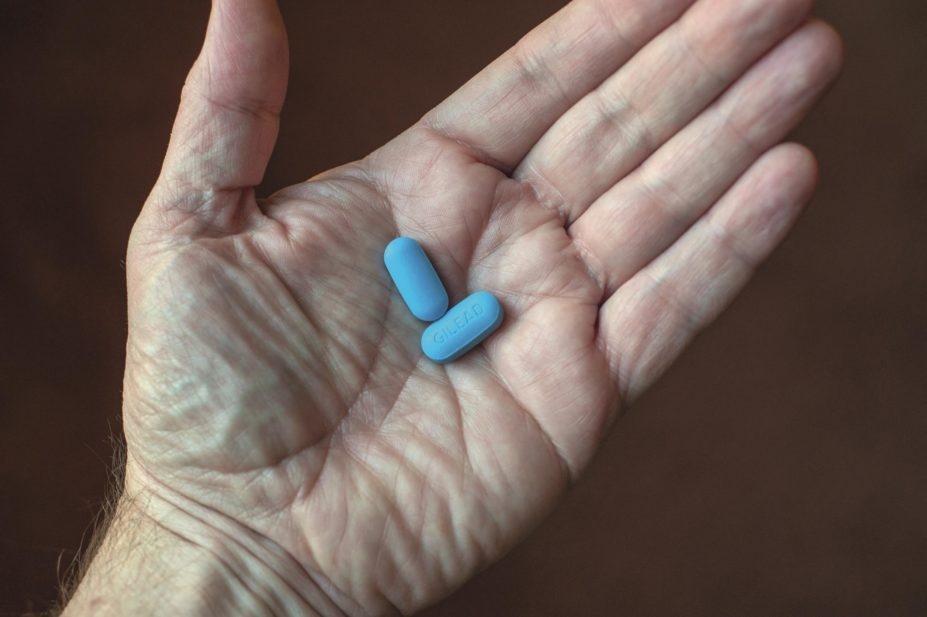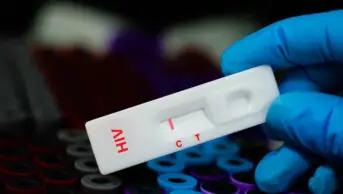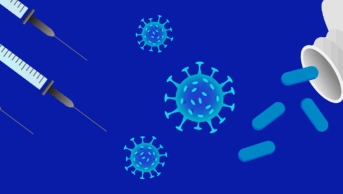
Directphoto Collection / Alamy Stock Photo
Pre-exposure prophylaxis (PrEP) has been called ‘game-changing’ by many, including the UK National AIDS Trust. It has the potential to halt the HIV epidemic (
The Pharmaceutical Journal 2015;294:517) — which is proving stubbornly resistant to other public health measures, such as safer sex campaigns — and has been shown to cut rates of infection in high-risk populations by 80%[1]
,[2]
. However, figures released by Public Health England in October 2016 show the rate of new diagnoses of HIV infection in the UK has remained unchanged in recent years.
As such, it is clear that the current strategy to reduce rates of HIV infection is not working but, despite all the evidence of its efficacy and cost effectiveness, we are still waiting for a decision on whether the NHS will make PrEP available to those at high risk of infection.
At a cost of almost £400 per person per month (at the current list price, although the NHS would get a bulk discount), PrEP is not cheap. Depending on how many people would be eligible, NHS England has estimated the total annual bill at somewhere between £10m–20m — which could be construed as too steep in the midst of austerity measures and tightening NHS finances. But such a view is short-sighted.
Departure from due process
NHS England had already spent 18 months reviewing the available evidence on PrEP (Truvada; emtricitabine/tenofovir) — the once-daily antiretroviral combination pill manufactured by Gilead — when it unexpectedly announced in March 2016 it would no longer take responsibility for the funding of it.
Instead of a proposal for a structured service to provide PrEP to those most at risk of HIV infection, as had been widely expected, NHS England shelved the plans (Pharmaceutical Journal online, 23 March 2016), stating it was not its responsibility to fund the drug, which seemed to be a departure from the normal approval process. The policy had been considered and was ready to be put out for consultation before being sent to the clinical priorities advisory group, which makes recommendations on NHS England’s approach to commissioning services, treatments and technologies — NHS England follows this same process for all specialised services for which it has direct responsibility.
Yet at the 11th hour, it decided that local authorities should bear the cost of treatment because disease prevention fell under their remit. Local authorities, which have been responsible for public health since 2006, said they simply did not have the budget. They argued that the NHS funds other preventive medicines — including post-exposure HIV prophylaxis, which is given to individuals who have been potentially exposed to HIV — and would reap the rewards financially from a reduction in cases of HIV.
Meanwhile the only way high-risk individuals in the UK could access the drug — which is available in the United States, Canada, France, Australia, South Africa, Kenya and Norway (free at point of care) — was by ordering it online to be shipped from abroad. Not even a High Court ruling that declared NHS England does have the power to fund the drugs brought the matter to a close (The Pharmaceutical Journal online, 3 August 2016).
Once again, NHS England caused further delays by appealing the case. It used similar delaying tactics with regard to hepatitis C drugs in July 2016, even though they were already recommended by the National Institute for Health and Care Excellence (NICE), England’s health technology assessment body.
Of even greater concern is a warning from NHS England officials (
Pharmaceutical Journal 2016;297:100) that, even if it lost its appeal, PrEP would still be pitted against a range of other specialist treatments up for funding. Much of the subsequent media coverage followed the lead of NHS England with dire warnings that treatments for cystic fibrosis and cancer could lose out if PrEP was agreed.
What should have been a fairly straightforward decision, given the available evidence, has turned into a political football with depressingly homophobic undertones. For example, NHS England described PrEP as “a measure to prevent HIV transmission, particularly for men who have high-risk condomless sex with multiple male partners” (
Pharmaceutical Journal 2016;297:100).
The narrative that HIV is somehow less deserving than other conditions has no place in a clear evidence-based review of the best use of NHS resources. Many health organisations have joined the HIV charities in condemning the ‘divide and rule’ tactics used by NHS England and have composed an open letter, published in The Times on 14 September 2016, which called on the NHS to adopt an ethical and transparent approach. It is hard to imagine such chaos should this matter have been handled by NICE.
Politics over evidence
At health secretary Jeremy Hunt’s request, NICE published a clear evidence summary of the use of Truvada for PrEP that looks at the evidence from four clinical trials. However, it has not been asked to carry out a full guideline process, recommendations from which must be taken up by NHS commissioners.
NHS England maintains that, while it has the ability to fund PrEP, it does not have the obligation. In a draft policy proposition published for consultation in August 2016, the case and criteria for PrEP has been clearly set out ready for the clinical priorities advisory group to evaluate and make the final call.
But with NHS England and Gilead locking horns over price — the NHS says it is excessively high while the drug company says it has already offered significant discounts — a decision remains out of reach. The potential use of generic alternatives is still on the table and, meanwhile, funding decisions for 13 other medical treatments are on hold.
This entire process should have been long completed and each day the issue is drawn out, 16 people become newly infected with HIV. The NHS has to make difficult choices but it should do so transparently and without prejudice, while following clear processes. NHS England needs to stop playing politics and make an evidence-based decision as it would with any other treatment without any further delays.
References
[1] McCormack S, Dunn DT, Desai M et al. Pre-exposure prophylaxis to prevent the acquisition of HIV-1 infection (PROUD): effectiveness results from the pilot phase of a pragmatic open-label randomised trial. The Lancet 2016;387:53–60. doi: 10.1016/S0140-6736(15)00056-2
[2] Molina JM, Capitant C, Spire B et al. On-demand pre-exposure prophylaxis in men at high risk for HIV-1 infection. New England Journal of Medicine 2015;373:2237–2246. doi: 10.1056/NEJMoa1506273


